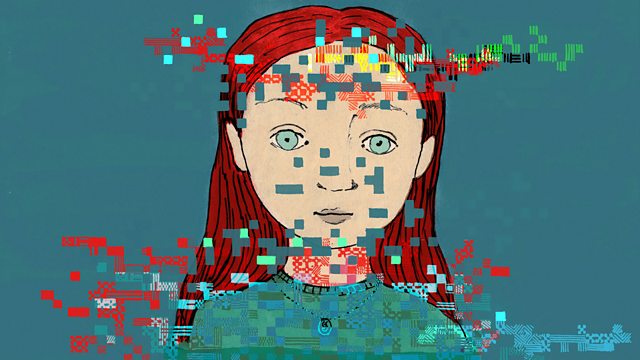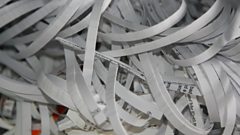Traces
What if you do not want to be defined by your records? And how do our physical and digital traces affect us?
Our records define us - birth records, death records, crime records, marriage records - but what if you don't want to be defined by your records? And how do our physical and digital traces say affect us? In this episode of The Digital Human, Aleks explores these questions by hearing three very different tales of recorded lives...
Last on
More episodes
Previous
Next
Clip
-
![]()
Michael Landly: And it all went to a landfill sight in Essex...
Duration: 01:19
Music Played
-
![]()
Joah Valley
In My Life
- The Exotic Beatles: Part 3.
-
![]()
Osees
The Poem
- An Odd Entrances.
-
![]()
Nightmares on Wax
Nights Interlude
- A Word Of Science: The 1st And Final Chapter.
-
![]()
Tycho
A Walk
- Dive.
-
![]()
David Bowie
John, I'm Only Dancing
- The Rise and Fall of Ziggy Stardust and the Spiders from Mars.
-
![]()
David Bowie
Starman
- The Rise and Fall of Ziggy Stardust and the Spiders from Mars.
-
![]()
Maggie Rogers
Alaska
Fiona Courage

Fiona Courage is the curator of the Mass Observation Project in the archive at the University of Sussex, and responsible for acquiring new data for the collection.
She talks to us about the Mass Observation Project and the value that lies in recording of even the smallest, most mundane aspect of daily life for historians when such data is so easily lost to the ages.
John Gadd

Michael Landy

is an artist who, in February 2001, decided to systematically destroy every single thing he owned - 7,227 things in all - in front of shoppers in the Oxford Street Branch of C&A. The piece, Break Down, became a surreal kind of self portrait.
Michael tells us what it was life destroying all his personal items in the public eye, how people reacted in an intensely visceral way, and if removing the physical traces of his life changed his sense of identity.
Qi Wang

April
Broadcast
- Mon 24 Oct 2016 16:30����ý Radio 4
Podcast
-
![]()
The Digital Human
Aleks Krotoski explores the digital world




